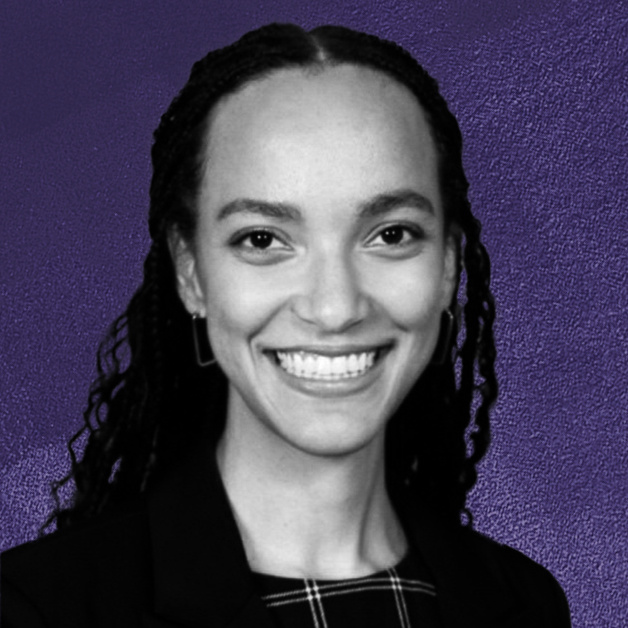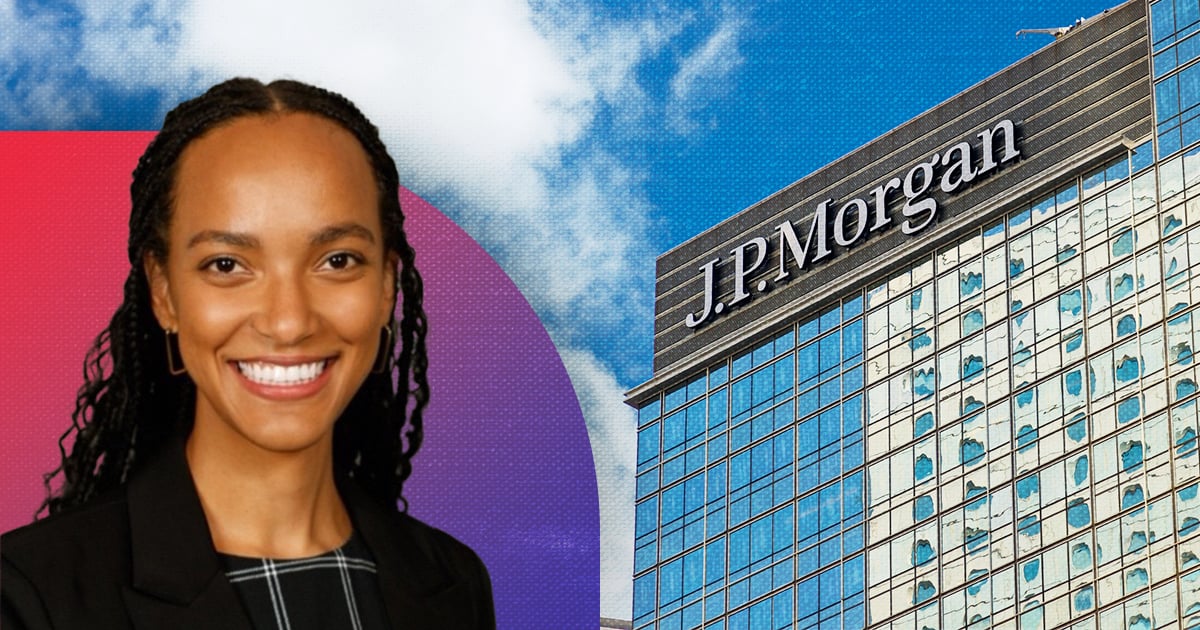
Kogod School of Business
Editor's note: This summer, we’re charting Kogod students’ internship experiences in this special spotlight series. We’re documenting their growth by exploring where they’re interning and why – and how their experiences feed into longer-term goals post-Kogod.
When Nekesa Schutte, MBA ’25, began working for Fidelity after college, she quickly fell in love with financial services. As a financial representative, she helped support Fidelity customers by answering questions and identifying ways to better meet their needs—both valuable relationship-building skills.
“People were constantly walking in seeking guidance for what to do,” she says. “I really enjoyed getting to know people. I wanted to do something relationship-based.”
Schutte was fueled by this same desire to pursue a STEM MBA at Kogod, which she began last August. After working several years for both Fidelity and Vanguard, she wanted to develop more objective business skills that would allow her to better serve customers.
This summer, she piloted her new business savvy at J.P. Morgan in New York City as an MBA Summer Associate. This nine-week internship offers extensive training and hands-on experience in wealth management. Schutte had the chance to co-lead the firm’s relationships with financial leaders and founders of private equity firms, recommending strategies to advance their long-term investing goals.
I got to work with people whose purpose is social impact. We are supporting movers and shakers who are making a positive difference in their industries.”

Nekesa Schutte
MBA Student, Kogod School of Business
Read on for more on Schutte’s experience at J.P. Morgan and how she plans to continue building sustainable relationships through finance.
Kogod: Can you share some highlights from your day-to-day this summer?
Schutte: I had the opportunity to work with two teams: the financial sponsors team, which serves founders of private equity firms, and the financial institutions group, which serves financial leaders. I analyzed clients’ asset allocations across different firms as part of my role. I attended meetings where investors counseled clients on why implementing specific strategies benefits their long-term financial goals. And I got to shadow a banker, which allowed me to co-lead relationships J.P. Morgan has with its clients.
What would you say is the greatest skill you honed at your internship?
Being inquisitive and questioning “why?” This is how you better understand financial markets and people in general. To make effective decisions, you need context. It allows you to craft a compelling pitch, which is crucial because J.P. Morgan’s clients are extremely intelligent. They're founders of huge firms—they already know how things work. You need to do your research to understand why something is important to them.
In what ways does this connect to the work you’ve been doing at Kogod?
In my coursework, I am always pushed to understand “the why” and craft an effective pitch and deliverable. My work with the Eagle Endowment, a student group that provides grant funding to other AU students and organizations, is just one example. As funders, we always want to know why we should support an initiative. How will this grant create impact? And what are the most effective ways to create a sustainable, long-term relationship with this impact?
What was the most impactful part of your experience at J.P. Morgan?
The cool thing about working for a private bank and these clients is that I'm working with people who drive change. These are founders of private equity funds whose purpose is social impact. We are talking about making change internally at J.P. Morgan and actively sourcing clients who want to lead change in their industries. We are helping movers and shakers make a positive difference.
At Kogod, we believe sustainability isn’t only a business outcome—it’s a business philosophy. In what ways have you experienced this in your wealth management work?
J.P. Morgan is big on sustainable investing, which is centered on long-term growth.
We want to invest in things that align well with clients’ long-term goals."

Nekesa Schutte
MBA Student, Kogod School of Business
You can even see this in how the company manages its own investments. It wants to be environmentally conscious, but leadership also believes in doing things slowly to have a long-term impact. For example, J.P. Morgan still invests in oil and gas—it is currently the most cost-efficient energy source—but we are also heavily investing in other, more sustainable avenues. We want to change in a way that will create the impact we want, not just “I want this to be different right now.”
You mentioned you were introduced to the internship opportunity while attending the National Black MBA conference in Philadelphia. Are there other ways diversity, equity, and inclusion have played a role in your work this summer?
J.P. Morgan leads several wealth initiatives specifically for minority groups. The company also actively seeks out Black or Latino families as clients so that we can be part of creating generational change. The firm also invests a lot in developing talent in a nurturing and inclusive environment. The firm’s intent is to drive equal opportunity across the board. The culture is: Everyone is welcome, as long as you’re a supportive, collaborative and inclusive person.
How would you say these values feed into your longer-term plans?
I want a sustainable, long-term career. I'm looking for a strong, open, transparent culture that is looking to drive change but sustainably. Maybe it's not the fastest, but it is the most effective. Over the summer, I have been pushed to think outside the box and get creative on how to be more effective in serving clients. I learned to take a lot more time, in the beginning, to know and understand clients to communicate effectively. It might be a slower approach, but it’s more effective long-term.
